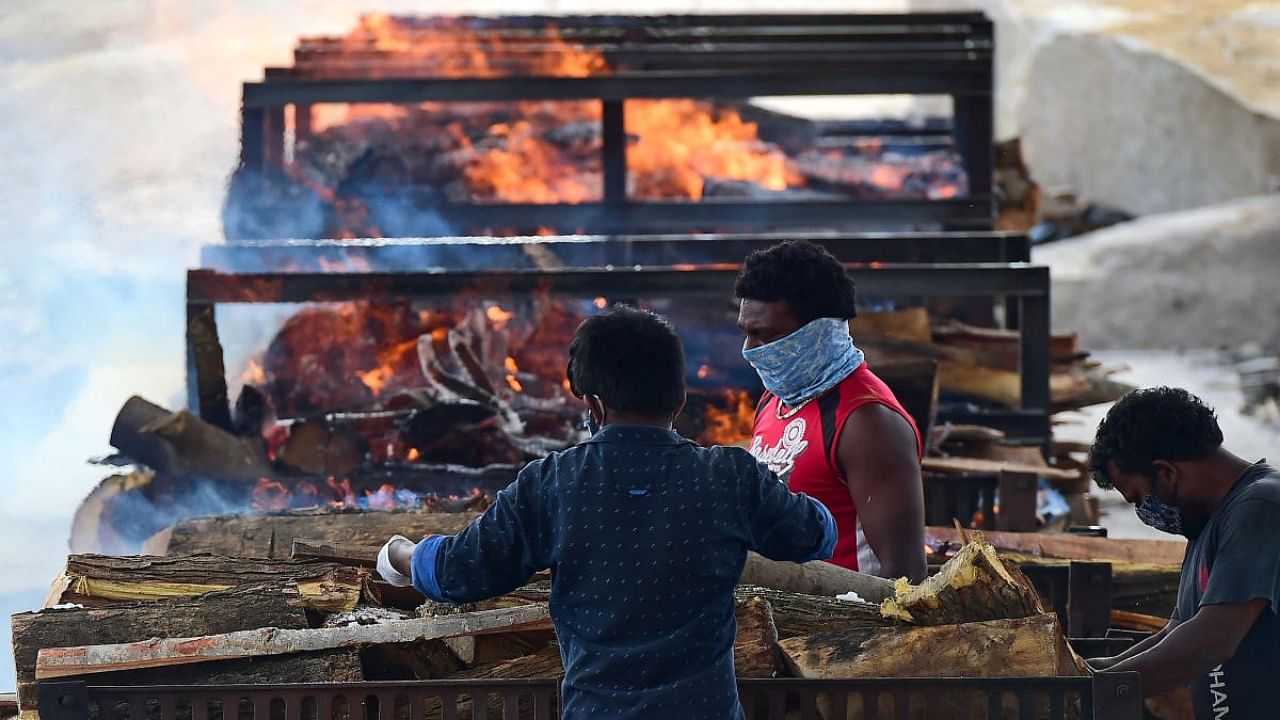
Thousands in India wait daily for the dead to reduce their bones to a source of calcium that they sell to suppliers of calcium factories. While bone-selling has been a continued source of income in India despite a strict ban on the activity, the ‘lockdown bone-diggers’ are forced into a source of livelihood that they find very difficult to give up. The pandemic has further pushed them into deep isolation because of lack of any other means, forcing them to take up the roles of bone gatherers, robbers and scavengers.
Illegal bone-gathering has become a common practice amidst the second wave of Covid-19, where mass cremation sites and hundreds of pre-dug burial spots have become an opportunity for those who struggle to survive. In the loss of a loved one of one family, the bone-digger finds the means to feed his family. Around the burial grounds in Kolkata, bone gatherers are exploited by local goons in the pursuit of quick cash. Bikram works at the lowest level as a bone gatherer, selling it to men in masks who take human tissues and bones to medical institutions and students. The graveyards of Kolkata have always been haunted by rackets of illegal bone-trading, but the lockdown has again drowned the bone-diggers and sellers in bones, caustic soda, hydrochloric acid and trauma.
While some gather bones, others have taken a more difficult route, all in pursuit of survival.
In Dahod, the lockdown has given rise to graveyard robbers who dig at midnight post fresh burials. Zahir stocks his vehicle with small shovels to dig every 2-3 days. He takes a remote route to escape the checkpoints. The lockdown also means that fewer people will spot him. Since he has been doing this for some time now, he can spot the difference between a femur and a fibula.
Elsewhere, on the ghats of Varanasi, Radhe waits every night to rob the ash-smeared Aghors who move about at midnight in search of bones, in between cannabis and their own macabre practices. Radhe used to sell goods for rituals in a rented shop space, but his new job is that of a bone-robber.
The quest for bones is unlimited and is also extended to animal bones. Caste plays an important role amidst those who are forced to scavenge bones, for those who begin on this path once are unable to get out of it easily. The bone scavengers are in between one of the biggest struggles for survival. In Kanpur Dehat, the bone scavengers are found to separate animal flesh from the bones to feed their family, in the absence of any other nutrient source. Amit, who raids butcher shops at night, says that on some days, the bone marrow is his family’s only source of fat and protein. The lockdown has made them plan for meals in advance, despite the fact that the raids have become shorter because of the fear of the spread of disease. In Ghazipur landfill, Delhi, waste workers dig the piles to find materials of resource. In the lockdown, their resource recovery tactic has made them scavenge for chicken and bones to feed their children. Each day, Sakhubai waits eagerly for the vehicles to dump fresh waste so that she can rescue pieces with some leftover flesh to feed her family of four.
Sunita sells dug-out animal bones to people in small tents on the Amritsar-Jamnagar Expressway. These tents are the practice spots of ‘tantric gurus’ who pay a good price for these bones, which they use to make ‘jewellery’ for their rituals. After she earned Rs 1,000 thus, she brought another seller into this business. Struggling through Covid-19, many patients also used to come to these tents for tantric treatments to ‘wash’ themselves of the disease in the early days of the pandemic. More patients mean more digging for the bones.
Others who have been in the bone trade for decades have built a structural hierarchy of people who collect bones to sell it to calcium factories. Some used to sell the bones to foreign traders for counterfeit make-up products in illegal factories. Amidst the lockdown, bone traders send their agents to cremation grounds to scrape through every inch of the last remains. Krishna, a bone trading agent, says that “he has often been an impostor, presenting himself as a friend or relative of the dead” to be able to get a chance to scrape out every remaining bone to present to his master. He says that he also trades in animal bones, which are easier to find than human bones.
While the pandemic and the increase in the Covid-19 death toll has fractured society at all levels, the macabre scenes that we do not see seem straight out of a horror film, and unbelievable. But that’s the truth, behind which is a desperate quest for survival for those people who have no other means left anymore. Many continue to be exploited by bone traders who are also now living off every bone, animal or human.
(The writer is the National Convener of Bhim Safai Karmachari Trade Union. She is also known as the ‘Toilet Woman of India’)